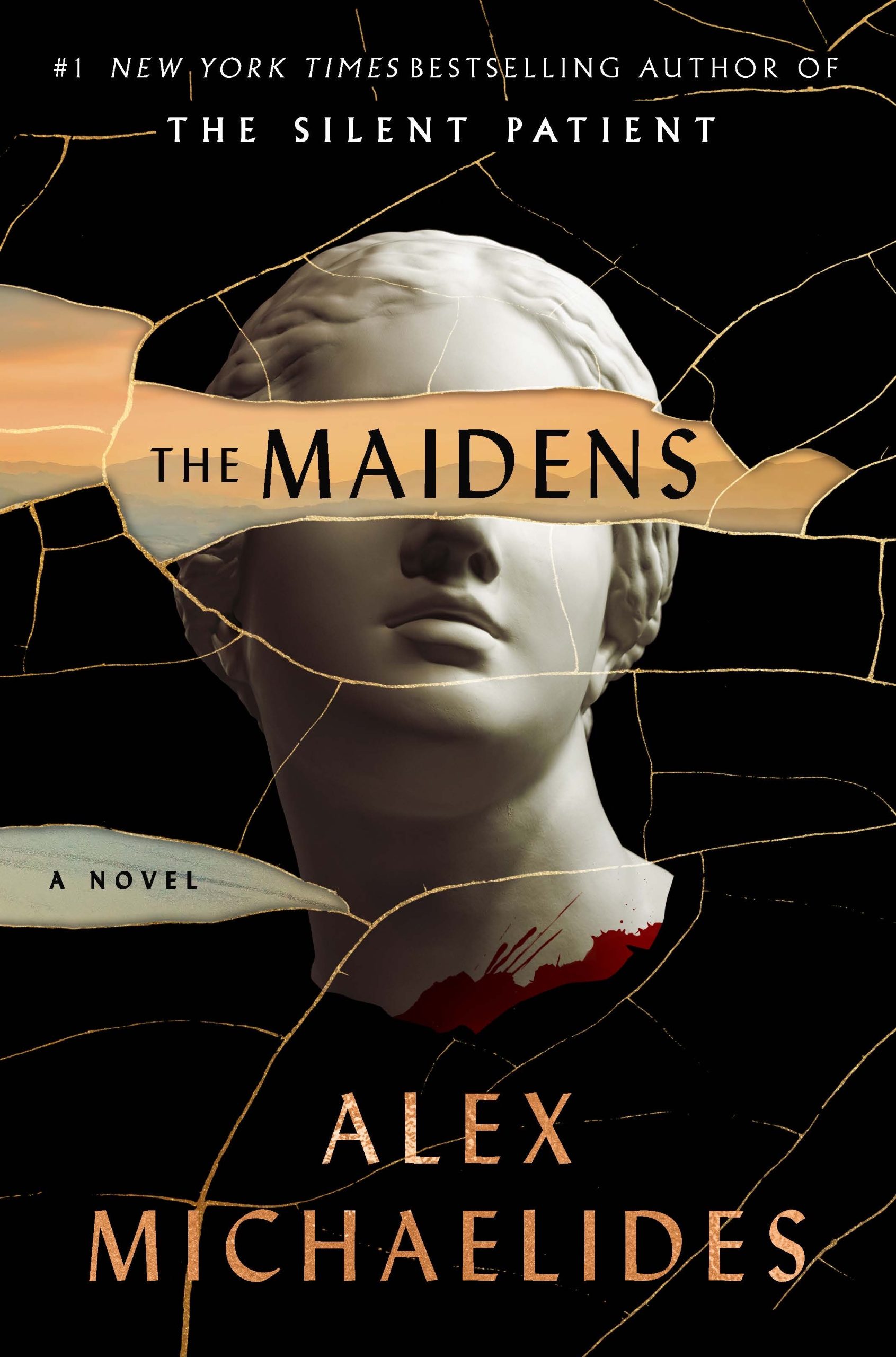
Alex Michaelides returns to the dark-psych terrain that made The Silent Patient a smash, this time transplanting us to Cambridge University where grief, mythology, and a cultish study group collide. The ingredients are irresistible on paper: an enigmatic professor adored by a circle of brilliant young women, a trail of murders, and a therapist protagonist determined to unmask the truth. The result is a sleek page-turner that reads quickly, looks handsome in atmosphere, and sparks debate the moment you close it.
What the story is about
Mariana Andros, a London group therapist still reeling from her husband’s death, rushes to Cambridge when her niece Zoe calls after a friend’s body is found. Suspicion falls on Edward Fosca, a glamorous Greek Tragedy professor whose secretive circle of students call themselves The Maidens. Fosca has an alibi. Mariana is not buying it. As bodies drop and cryptic classical references pile up, Mariana inserts herself into the investigation and fixates on proving Fosca guilty, even as her judgment blurs.
What works
Atmosphere that actually breathes. Michaelides paints Cambridge as postcard perfect at first glance, then quietly corrupt under the spires. Cloisters, candlelit rooms, whispered tutorials, and Persephone-laced rituals create a moody, cinematic backdrop. If you love dark academia vibes, this setting delivers.
Propulsive pacing. Short chapters and clean scene cuts make this an easy book to binge. Many readers will fly through in an evening because each chapter dangles a small hook. Even when you doubt the logic, the forward motion rarely stalls.
The mythic frame. Allusions to Persephone, the underworld, and revenge tragedy provide a thematic skeleton that fits a campus thriller. The text keeps circling ritual, secrecy, and the cost of transgression, and those refrains give the novel a unifying sound.
A compulsive read for twist-hunters. If you come for entertainment value, there is pleasure in the reveals, the cameos from the author’s earlier universe, and the game of pinning red strings to every suspect. One early reviewer captured it well: start reading, forget to come up for air, then emerge hours later feeling like you toured a haunted college town.
Where readers split
Character credibility. A sizable camp finds the people on the page too melodramatic. Mariana can feel less like a seasoned clinician than a magnet for danger who misreads rooms and leaps past boundaries. Several male characters arrive bathed in creep glow, which can feel like overproduced red herrings. The dialogue sometimes veers theatrical, which either heightens gothic mood or breaks realism depending on your taste.
Psychology on the page. The novel leans into pop-psych explanations and therapy-room asides. For some, these interludes deepen Mariana’s lens. For others, they interrupt flow and land as Psych 101 inserts. A few readers were bothered by ethical shortcuts in how mental health practice is portrayed and by the way trauma and exploitation surface mainly as plot accelerants rather than subjects granted careful processing.
Structure and sleight of hand. Those brisk three-page chapters are a double-edged sword. They create speed, but they also skim character interiority. If you want the slow, ice-cold character excavation of Donna Tartt, you may find this more outline than x-ray.
The twist and its fallout. Without spoiling specifics, the big turn will divide readers. Some will grin at the audacity and the interconnected universe tease. Others will feel the motive is overcomplicated and the final explanation leaves logical gaps. If you prize fair-play mystery rules, you may bristle. If you read thrillers for the roller coaster, you may simply throw your hands up and enjoy the drop.
Themes under the surface
Grief and fixation. Mariana’s unresolved grief is the engine. Her need for meaning attaches to Fosca, to Cambridge, to patterns in ancient texts. Whether you buy every choice she makes, the book is about what grief licenses us to do when we think we are protecting family.
Power and pedagogy. The professor as sun around which students orbit is an old academic trope, but the novel pushes it toward cult dynamics. Charisma, secrecy, and the thrill of being chosen are depicted in seductive and disturbing ways. Again, your mileage will vary on how nuanced that portrait feels.
Myth as mirror. Using Persephone to recast modern violence gives the plot a familiar shape. The literary echoes sometimes add depth, sometimes feel decorative. The best scenes remind us why stories of descent and return keep haunting new generations.
Who will enjoy it
- Readers who love dark academia aesthetics, Greek-myth seasoning, and posh settings with rot beneath the ivy
- Thriller fans who prefer velocity over granular realism
- Anyone who enjoyed The Silent Patient and wants to revisit Michaelides’s shared world
What might not work for you
- If you need rigor in psychology ethics and procedure, prepare to suspend disbelief
- If overly theatrical dialogue or a parade of conveniently suspicious men pulls you out of a story, expect some eye-rolling
- If you measure success by a twist that is airtight in retrospect, this one may leave you arguing with the book
Verdict
Rating: 3.5 out of 5
The Maidens is sleek, stylish, and compulsively readable, with atmosphere to spare and a hooky premise. It is also messy. When it aims for tragedy it sometimes hits melodrama, and its psychology can feel more ornamental than earned. Still, I turned pages with genuine eagerness, admired the Cambridge mood, and enjoyed the mythic scaffolding even when the logic wobbled. If you meet it as a midnight treat rather than a syllabus entry, you are more likely to have a wickedly good time.
Ready to read it and decide for yourself?
Buy The Maidens on Amazon


